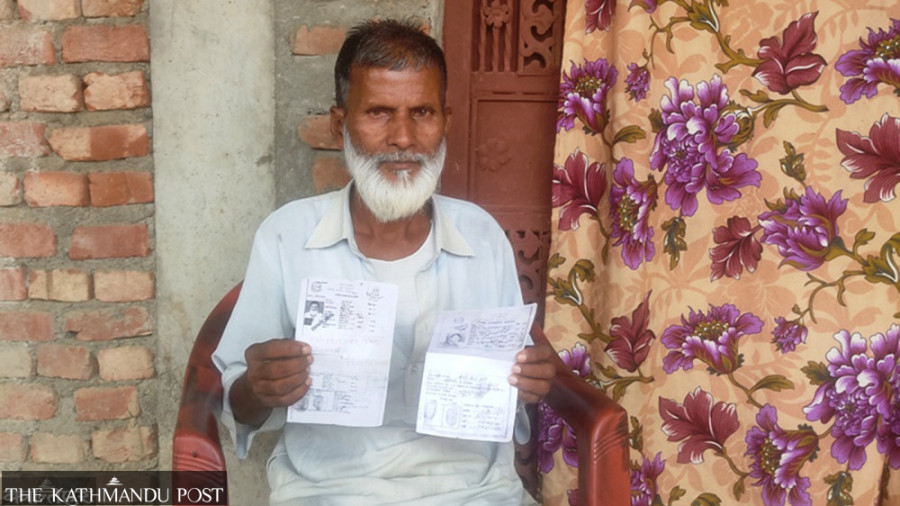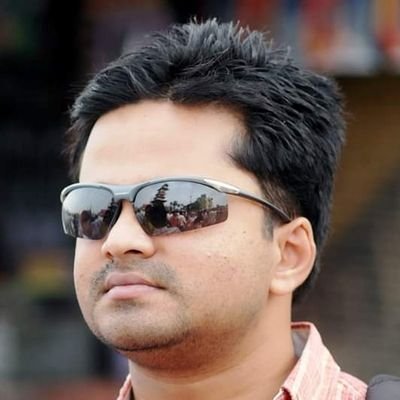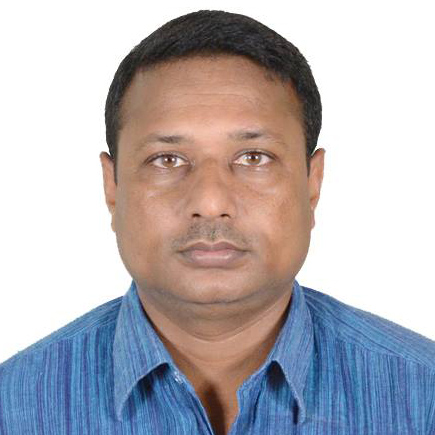National
Lack of citizenship robs youths of voting rights
The state has discriminated against the children of those who acquired citizenship by birth, say civil society leaders.
Bhusan Yadav & Laxmi Sah
Shyam Patel, a 26-year-old man from Birgunj Metropolis-12, holds a Bachelor’s degree from a private college. He has been working at a steel factory at Parwanipur along the Parsa-Bara Industrial Corridor for the past two years. Patel complains that he is paid less for the work he does and the academic qualification he possesses.
“I am compelled to work on a low salary since I don’t have a citizenship certificate,” he says. “One needs one’s citizenship certificate even to get a mobile SIM card. I have been frequenting the District Administration Office for the past seven years. But I have not been able to acquire a citizenship certificate as of now.”
Patel’s father is a businessman and has been living in Nepal for the past four decades. He acquired the Nepali citizenship by birth which means Shyam does not qualify for citizenship.
The Citizenship Act 2006 entitles anyone born within Nepal’s territory before April 12, 1990 to citizenship by birth. However, their children haven’t got citizenship by descent in the absence of the law as the constitution said the provision to grant them citizenship would be guided by a federal law.
Election fever has gripped Shyam’s settlement in Parsa Constituency 1. “People are talking about the candidates, their party policies and manifestos to exercise their franchise,” Shyam said. “But I am isolated. I cannot choose my representatives since I don’t have voting rights. The state has made me a non-citizen.”
Suresh Sah, aged 23, of Ranighat in Birgunj-11 shares a similar ordeal. He is deprived of voting rights since he does not have a citizenship certificate. Suresh’s mother acquired citizenship by descent in 1995. But Suresh is without citizenship as his father got citizenship by birth in 2007.
“Most of my friends are enthusiastic to cast their votes in the federal and provincial elections on Sunday. But I am deprived of my franchise right without citizenship,” said Suresh, adding that the authority refused to issue him the citizenship certificate citing the prevailing legal provisions.
According to Shyam and Suresh, there are more than 15,000 people in Birgunj alone who are deprived of citizenship certificates. It is estimated that thousands of people in Madhesh Province are deprived of citizenship.
Nilisha Barma of Jitpur Simara Sub-metropolitan City-7 in Bara wants to join government service after passing the examinations conducted by the Public Service Commission. But her dream has remained unfulfilled despite having the capability and required academic qualification since she too does not possess the citizenship certificate.
Nilisha’s mother is Nepali citizen by descent but her father acquired citizenship by birth. She filed a writ petition at Birgunj High Court one-and-a-half years ago after the district administration office denied her permission to issue a citizenship certificate. The court ordered the District Administration Office in Bara to provide her citizenship. “I filled up a form and submitted it to the district administration office. But the office did not give citizenship. I am tired of my struggle to get citizenship,” said Nilisha.
She is currently employed at a private company. “But I cannot even open a bank account to get my salary due to the lack of citizenship. I have wasted so many opportunities. The state has ruined my life,” she said.
The problem of acquiring citizenship by the children of people who got citizenship by birth began after 2007. The government issued citizenships in 2007 but it was soon halted. As per the Ministry of Home Affairs, around 2,345,000 people received citizenship by descent while around 175,000 others acquired citizenship by birth in 2007.
The home ministry again started issuing citizenship certificates as per the ministerial-level decision on January 8, 2012. Acting on a writ petition, the Supreme Court issued an order against the government to halt issuing citizenship certificates.
“The state has discriminated against the children of those who acquired citizenship by birth. What kind of legal provision is this where the father has citizenship but his children do not?” said Hiralal Sah, a civil society leader.
The children of around 175,000 people who received citizenship by birth in 2007 are deprived of the citizenship certificate now. The government authorities do not have actual data on those stateless people. According to rights activists, there are around 600,000 people who are deprived of citizenship certificates.
In a bid to address the issue of those stateless people, the Deuba government tabled a new amendment bill to the Citizenship Act on July 8. But President Bidya Devi Bhandari refused to authenticate the bill although both the House of Representatives and National Assembly endorsed it.




 20.16°C Kathmandu
20.16°C Kathmandu














